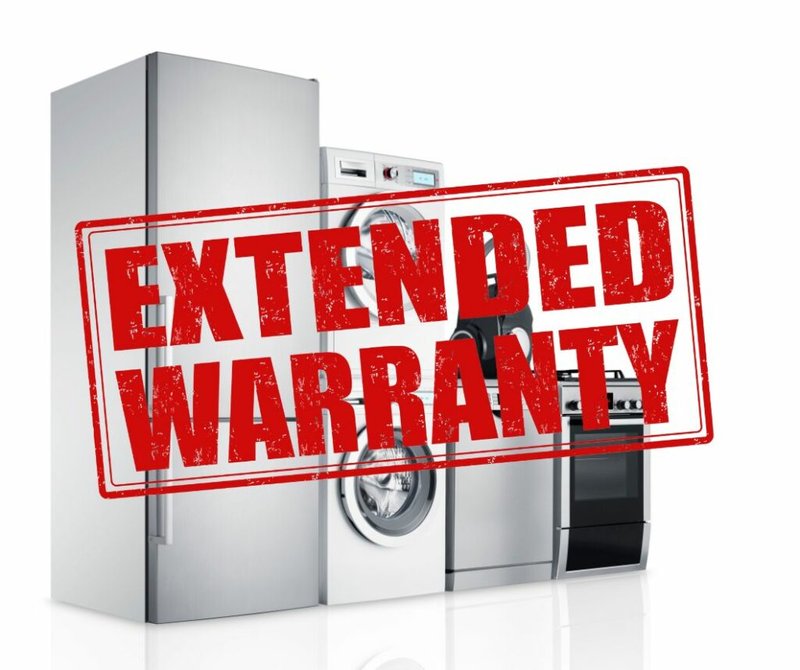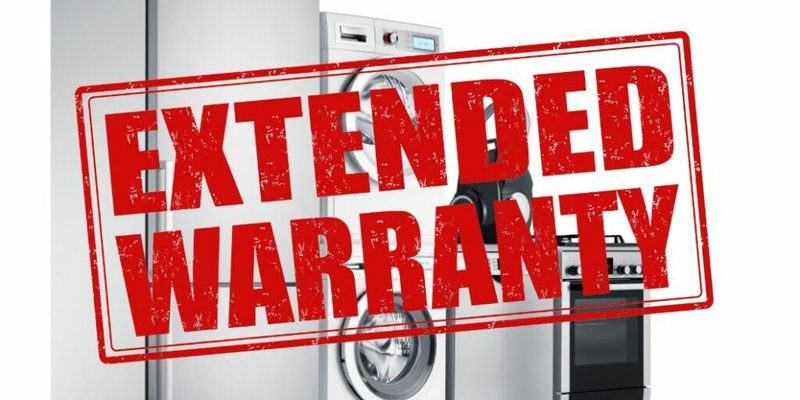
It’s a bit like being offered travel insurance on a road trip close to home—part of you says “Why not?” while another part wonders if you’re just buying peace of mind. With GE’s reputation for reliable laundry appliances, the decision isn’t always obvious. Let’s break down the real value of these coverage plans, how they work, what they typically include, and whether you should spring for extra protection or skip it and cross your fingers.
Whether you’re someone who loves the security of knowing repairs are covered, or a skeptic who’s never cashed in an extended warranty in your life, it pays to get clear on what you’re really buying. Here’s what you should know before you spend another dollar on your GE laundry appliances.
What Is an Extended Warranty for GE Laundry Appliances?
Here’s the thing—a standard manufacturer’s warranty is like a one-year handshake promising, “If it breaks because of us, we’ll fix it.” For most GE washers and dryers, that standard coverage lasts a year from the date you buy it. After that, you’re on your own if something goes wrong.
An extended warranty (sometimes called a protection plan or service contract) steps in after the regular warranty runs out. These plans—often offered by GE, retailers, or third-party companies—promise to cover the cost of repairs, parts, or sometimes even a full replacement, for a set number of years beyond the original warranty.
You might see plans that add two, three, or even five more years of protection on top of your GE’s original coverage. They usually cover mechanical or electrical failures that crop up from normal use—not accidental damage, floods, or that time your toddler decided the washer would make a great hiding place for toy cars. Understanding exactly what is and isn’t covered is key before you pay extra.
How Much Do Extended Warranties Cost for GE Washers and Dryers?
Prices for GE appliance extended warranties are all over the map. Sometimes you’ll see them bundled in at checkout for as little as $80; sometimes, the price tag is closer to $250—or more, if you’re protecting both a washer and dryer.
The cost usually depends on:
- The price and model of the appliance
- The length of the coverage (two years versus five, for example)
- Who’s selling the plan (GE, a retailer, or a third-party company)
Here’s a quick example: Say you snag a mid-range GE dryer for $750. The sales rep offers a three-year extended warranty for $129. At first glance, that’s about 17% of your purchase price. If something serious breaks after that first year, you could save hundreds. But if nothing goes wrong—or if only tiny things need fixing—you might never see that money again.
Buying an extended warranty is a bit like buying a spare tire for a car you aren’t sure will ever get a flat. It’s useful only if you ever need it. The trick is knowing how likely that is—and what you’re really getting for your money.
What Does an Extended Warranty Actually Cover?
This is where the details matter. A lot. Most GE extended warranties promise to pay for:
- Replacement parts and labor for mechanical or electrical failures
- Service calls for repairs (so you’re not paying out-of-pocket for someone just to show up)
- Some plans also cover resetting the machine’s code or troubleshooting sync issues with smart features, if you have a Wi-Fi-enabled GE laundry appliance
But—and this is an important “but”—extended warranties almost never cover:
- Problems caused by misuse or accidental damage (like overloading that washer one too many times)
- Cosmetic issues: scratches or dents aren’t included
- Regular maintenance, like cleaning out lint traps or replacing water filters
- Anything caused by acts of nature (floods, fires, etc.)
You might be wondering, “What about troubleshooting common problems, like error codes or the machine refusing to pair with an app?” Some extended plans, especially those offered directly by GE or major retailers, do offer phone support or even help with how to reset or sync your machine. But always read the fine print—help with pairing, battery issues in a smart appliance, or app troubleshooting isn’t universal in all plans.
How Reliable Are GE Laundry Appliances Without an Extended Warranty?
Honestly, one big reason folks skip extended coverage is faith in the brand. GE laundry appliances have a solid reputation for durability. Most will run for years with nothing more than basic TLC—think running cleaning cycles, not letting socks clog up the drain, and not overstuffing loads.
That said, no appliance is bulletproof. You can get unlucky with a weird electrical failure or a factory defect that shows up right after the basic warranty ends. The more bells and whistles your GE washer or dryer has—like steam features, Wi-Fi, or special sensors—the more potential points of failure you have. And repairs on those high-tech bits are usually pricier.
Here’s a little story: A friend of mine bought a GE washer and skipped the warranty. It cruised for six years without a hiccup. Someone else I know had a fancy GE washer where the touchpad went haywire after 18 months—the fix was several hundred bucks out of pocket. That’s the gamble: most people won’t need expensive repairs… but some will.
The Pros and Cons of Buying an Extended Warranty
Let me explain the real upsides and downsides, because this decision isn’t one-size-fits-all.
- Peace of Mind: If you hate the idea of unexpected expenses, extended coverage is like a security blanket. You know major repairs—or even a replacement—won’t cost you a fortune.
- Cost Savings, Sometimes: One big repair (like a failed motor or control board) can easily cost more than the warranty itself. If you’re unlucky, the coverage pays for itself fast.
- Convenience: Handling repairs, scheduling service, and arguing with techs becomes someone else’s problem.
But there are downsides too:
- Not All Repairs Are Covered: If you’re dealing with minor annoyances, cosmetic problems, or issues caused by user error, you’ll still pay out of pocket.
- Cost Adds Up: Buy coverage for every appliance, and those fees pile up fast. If nothing breaks (which is common), it’s money you never get back.
- Hassle With Claims: Some folks run into slow or complicated claims processes, especially with third-party warranty companies.
Alternatives to Extended Warranties: Are There Better Options?
If you’re not sold on paying for coverage, you’re not out of luck. Some folks build their own “appliance emergency fund”—setting aside cash in case a big repair pops up. Statistically, this works out cheaper for most people, since most appliances don’t break in those early years.
Another workaround? Check if your credit card adds any extra warranty protection automatically when you buy with that card. Some cards double the manufacturer warranty for free, which means you get an extra year (or sometimes more) without paying anything extra.
Also, knowing how to troubleshoot and do simple resets, or even replace a battery (in smart remotes or controls), can save you plenty on small fixes that might not be covered by any warranty. YouTube and manufacturer websites are loaded with step-by-step guides if you’re handy.
When Is an Extended Warranty Really Worth It?
Here’s where personal factors matter. An extended warranty isn’t automatically a good or bad deal. It really depends on your situation.
You might want coverage if:
- You have a tight budget and can’t easily afford a surprise $400 repair
- You tend to keep appliances for a long time (beyond the 1-year mark)
- Your GE washer or dryer has lots of high-tech features (more risk of expensive failures)
- You want to avoid the hassle of searching for a good repair tech
You might want to skip it if:
- You’re comfortable handling basic troubleshooting, resets, or battery swaps yourself
- You typically replace appliances every few years anyway
- You prefer to save the money or self-insure for repairs
How to Decide: Tips for Making a Smart Choice
If you’re still on the fence, here are a few steps to guide your decision:
- Read the Fine Print: Don’t assume all extended warranties are the same. Check what’s actually covered (and what isn’t!) before you buy.
- Shop Around: Some third-party warranty companies have better pricing or service than the retailer’s offer. But beware—some aren’t as reliable when it’s time to pay claims.
- Check Your Credit Card Perks: You might already have free extended coverage, no extra purchase required.
- Assess Your Risk Tolerance: Are you OK with a small chance of a big surprise bill, or do you want a guarantee in hand?
At the end of the day, buying an extended warranty for GE laundry appliances isn’t a must for everyone. It buys you peace of mind if you’re risk-averse—or leave it and hope your appliances live long and spin.
Final Thoughts: Peace of Mind vs. Practicality
Standing at the checkout, it’s easy to get caught up in the “what ifs.” Should you pay extra for a safety net on your new GE washer or dryer, or trust in your appliance—and your own troubleshooting know-how—to see you through?
Here’s what it boils down to: If a big repair bill would be a real headache (or if you have a laundry room full of high-tech, high-risk gear), that extra coverage might help you sleep at night. If you’d rather bet on GE’s reputation and pocket the savings instead, you’ll probably be just as fine—especially if you can handle a reset, pair a remote, or manage a code error now and then.
No solution is perfect, but now that you understand what an extended warranty for GE laundry appliances really does and doesn’t cover, you can decide with confidence—and a little less stress—before you toss your first load of socks in that shiny new machine.
